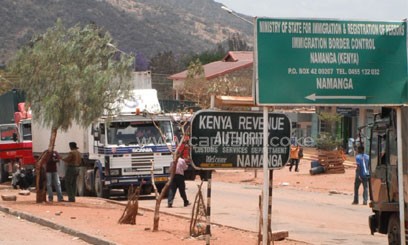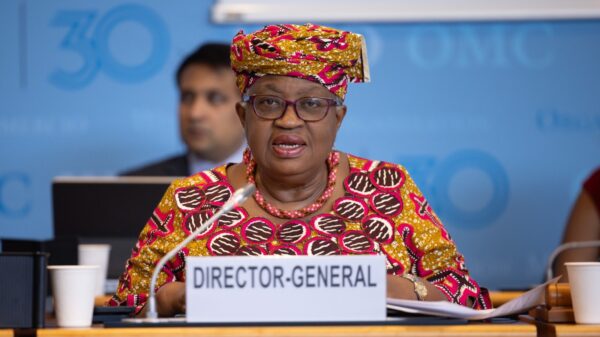
Non-tariff barriers that currently exist in border posts of most African countries greatly hinders trade./FILE
Nairobi, Kenya, Aug 29 – While poverty has sharply fallen worldwide over the last 30 years – from about 40 percent to under 20 percent – according to a World Bank report, African countries are still holding the record of most poor countries in the world.
Today, over 40 percent of people living in sub-Saharan Africa live in absolute poverty.
It is this grim reality and the urgent need to sharply reduce the poverty percentage in Africa through trade that dominated the Regional dialogue on World Trade Organization (WTO) accessions for the greater horn of Africa being held in Nairobi.
Speaker after speaker bemoaned among others erection of non-barrier tariffs in African borders, lack of product diversification and weak border governance as the main challenges hampering trade growth in Africa.
Speaking at the event, Gabriel Negatu, African Development Bank Director General, East Africa Regional Centre challenged African markets to diversify to have a chance at being competitive in a rapidly changing world.
“Africa faces major challenges. Our economies aren’t adequately diversified, our manufacturing sector isn’t adequately differentiated,” he said, adding that “we tend to draw from somehow similar resource and end up manufacturing similar products; it becomes very difficult to trade with each other.”
Negatu noted that the only way African regional blocs can attain competitiveness is to specialize. To achieve this, he urged the markets to hit a ‘pause’ button first, carry out a thorough audit to establish each nation’s strengths and weaknesses.
“For example, Ethiopia has 100 million people. Their power is sold at 3 cents but the man power is not as trained. But Kenya has a very wide natural resource base, access to the port and skilled labour. We need to take a step back, look at the region. Each one should look at what they do best and focus on that,” he said.
Of all the challenges Negatu pointed out, non-tariff barriers that currently exist in border posts of most African countries greatly hinders trade.
“You bring stuff to Namanga or Busia and you are held there for 8 days because there are many forms to be filled. We need to remove non-tariff barriers,” he lamented.
However, there is light at the end of the tunnel. African Development Bank has initiated One stop border post to reduce the examination of goods and cut down the bureaucracy experienced in most African borders.
“I’m happy to say that this is beginning to happen through the one stop border post, an initiative of African Development Bank, where your goods are inspected only once and not twice,” he said.
Mr. Paul Brenton, World Bank Group’s Lead Economist, Trade and Competitiveness Global Practice lamented the slow pace at which trade is taking to reduce poverty in Africa as it has done in other regions.
“Other regions have seen trade play a key role in reducing poverty. For example, 500 million people were pulled from poverty in East Asia and trade played a very key role in that but that hasn’t happened yet in Africa,” he noted.
Part of the problem in Africa that has delayed trade from playing a key role in poverty reduction he says is the structure of trade.
“Africa is mainly exporting commodities. One of the challenges is to diversify. And there are plenty of opportunities is to diversify,” he commented.
With the latest boom of infrastructural projects across Africa especially the East Africa Community (EAC), Brenton cautions against early celebrations just yet.
“Infrastructure is crucial but is not enough. So often you need to look at the policies and the regulations that affect the use of that infrastructure. And particularly when it comes to intra African trade looking at what happens on the border,” he pointed out.
“Because if agricultural products are subjected to delays of many hours then the product can perish and it undermines the efficiency of logistics chains. So addressing not just the infrastructure but it is used and potential barriers that reduce efficiency a long the infrastructure is crucial,” he concluded.
The meeting was officially opened by Amina Mohamed, Kenya’s Cabinet Secretary for Foreign Affairs.























